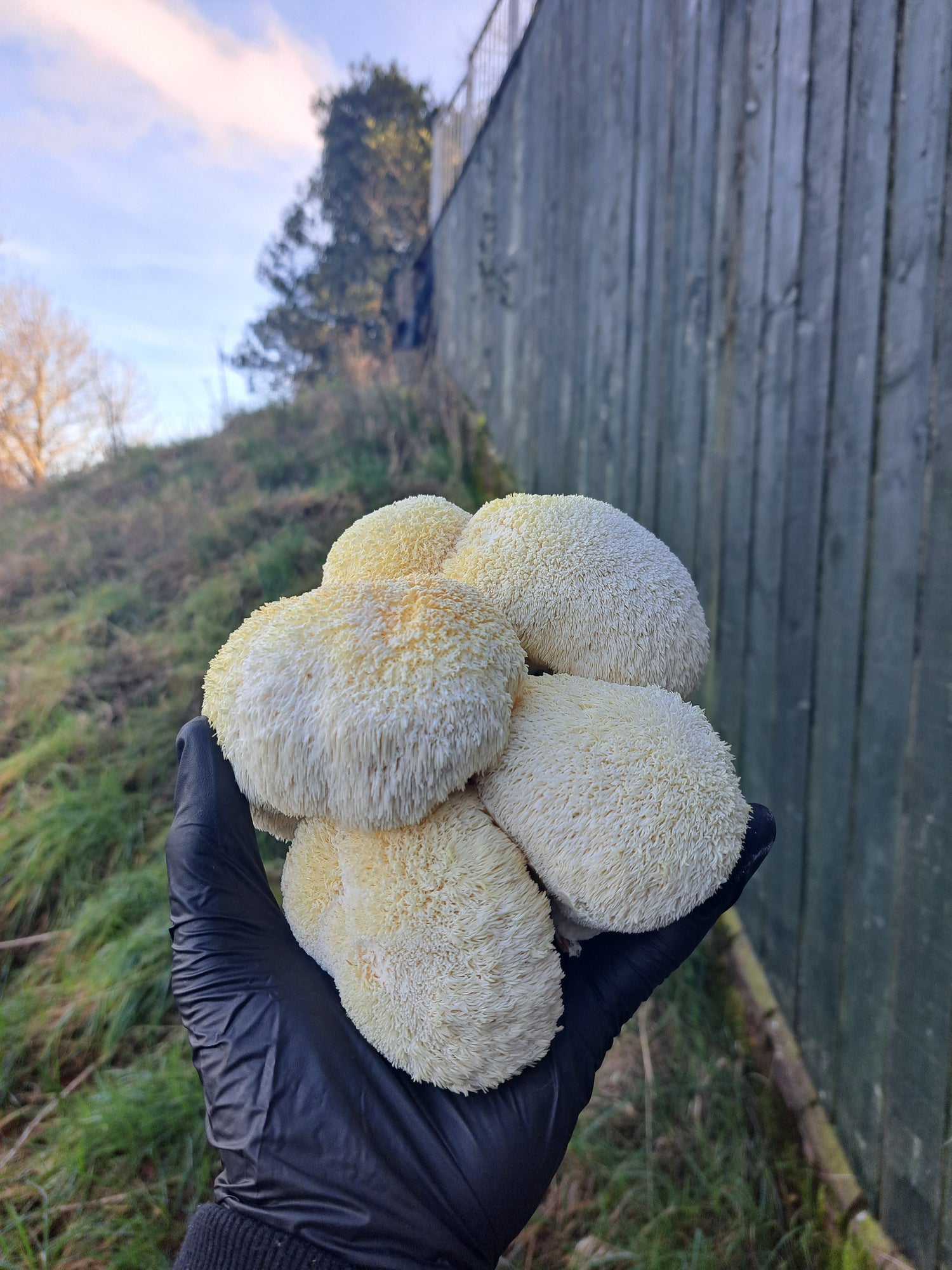
Gourmet & medicinal mushrooms cultivated in the Forest of Dean
Forest of Dean Mushrooms is a family-run, agro-ecological business focused on sustainable,
low-input mushroom cultivation and the production of nutrient-rich mushroom compost & vermicompost.
We grow gourmet and medicinal mushrooms, such as Oyster, Lion’s Mane, Shiitake, and Reishi, using low-input methods and ecological practices.
You can buy our tinctures & dry products here on this website.
We sell fresh produce through direct sales (reach out to us!), the Open Food Network & the Dean Forest Food Hub.
You can find us at the following markets:
- Newent Saturday Market - 3rd Saturday of every month
Why buy our mushrooms?
-
Provenance
Grown from mycelium to harvest — all right here in the Forest of Dean.
Unlike many UK mushroom farms that rely on imported fruiting blocks, we grow our mushrooms entirely ourselves. From the first mycelium agar plate to the final fruiting body, every step happens on our small farm. When you buy from us, you're truly supporting a locally grown food system — no shortcuts, no overseas shipping, just mushrooms with genuine provenance. -
Low-Input Agroecology
Less machinery, more mycelium.
We believe in growing food that works with nature, not against it. Our oyster mushrooms thrive on pasteurized straw — a low-impact, nutrient-efficient, byproduct substrate. Shiitake mushrooms are cultivated the traditional way on hardwood logs, and our Lion’s Mane, Chestnut & Maitake grow on a mix of wheat bran and sawdust sourced straight from our own sawmill or local joiners — not soy hulls or imported additives. Our 150 sq ft underground bunker is naturally humid enough to support fruiting without mechanical humidifiers, and we don’t use any heating in our grow chamber. It’s low-tech, low-impact, and rooted in agroecological principles that prioritize resilience and sustainability over industrial scale. -
Circular Waste Streams
What we grow feeds more than just people.
We build our farm around circularity. Our mushrooms grow on byproducts — pasteurized straw, sawdust, wheat bran — giving waste materials a new life in growing nutrient-rich food. After harvest, the remaining substrate doesn’t go to landfill. Instead, we transform it into compost and vermicompost, feeding soil, worms, and future crops. Every step of the process is designed to loop resources back into the land, not out of it.
Our online products
We sell our medicinal & dried products though this web-store. For fresh produce, see the links above!
-
Cordyceps Mushroom 1:3 Dual-Extract Tincture
Regular price £20.00Regular priceUnit price / per -
 Sold out
Sold outDried Lion's Mane Mushrooms
Regular price £7.90Regular priceUnit price / per -
 Sold out
Sold outDried Mixed Oyster Mushrooms
Regular price £5.20Regular priceUnit price / per -
King Blue OYSTER Mushroom Grain Spawn - 1KG
Regular price £14.24Regular priceUnit price / per -
Lion's Mane 1:3 Dual-Extract Tincture
Regular price £20.00Regular priceUnit price / per -
 Sold out
Sold outPre-Innoculated Mushroom Logs
Regular price From £10.00Regular priceUnit price / per -
Reishi Mushroom 1:3 Dual-Extract Tincture
Regular price £20.00Regular priceUnit price / per







